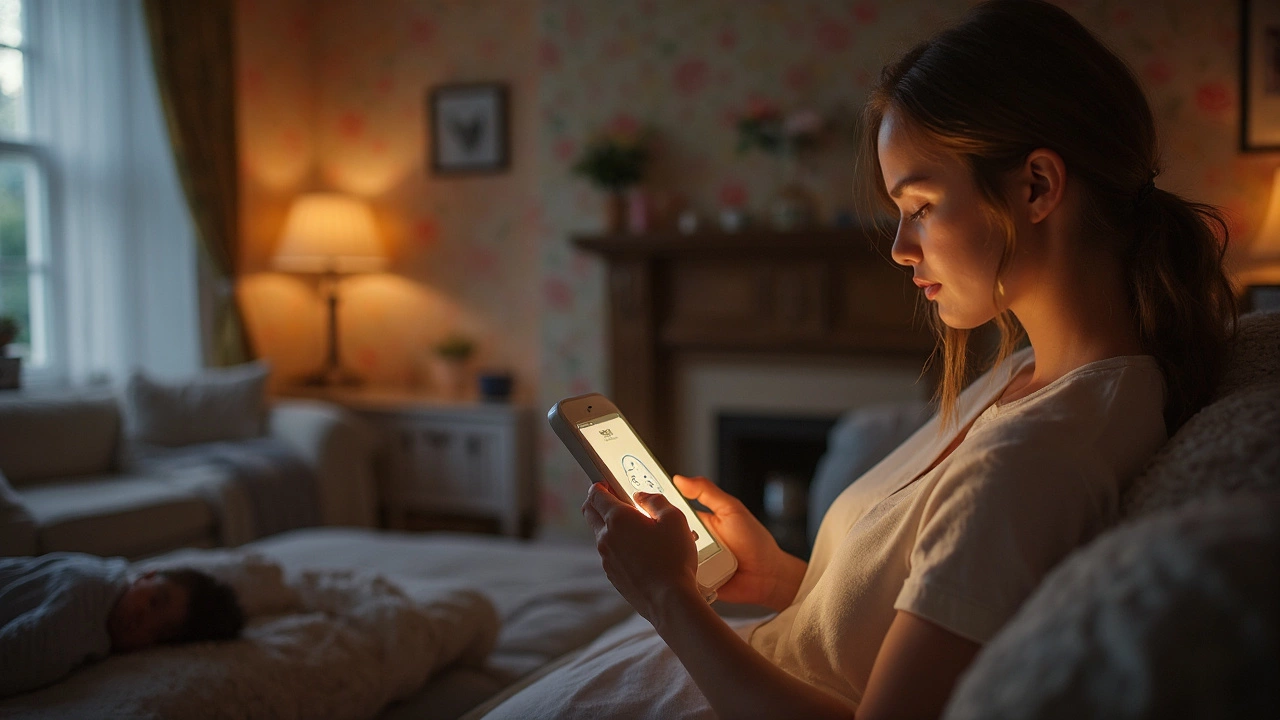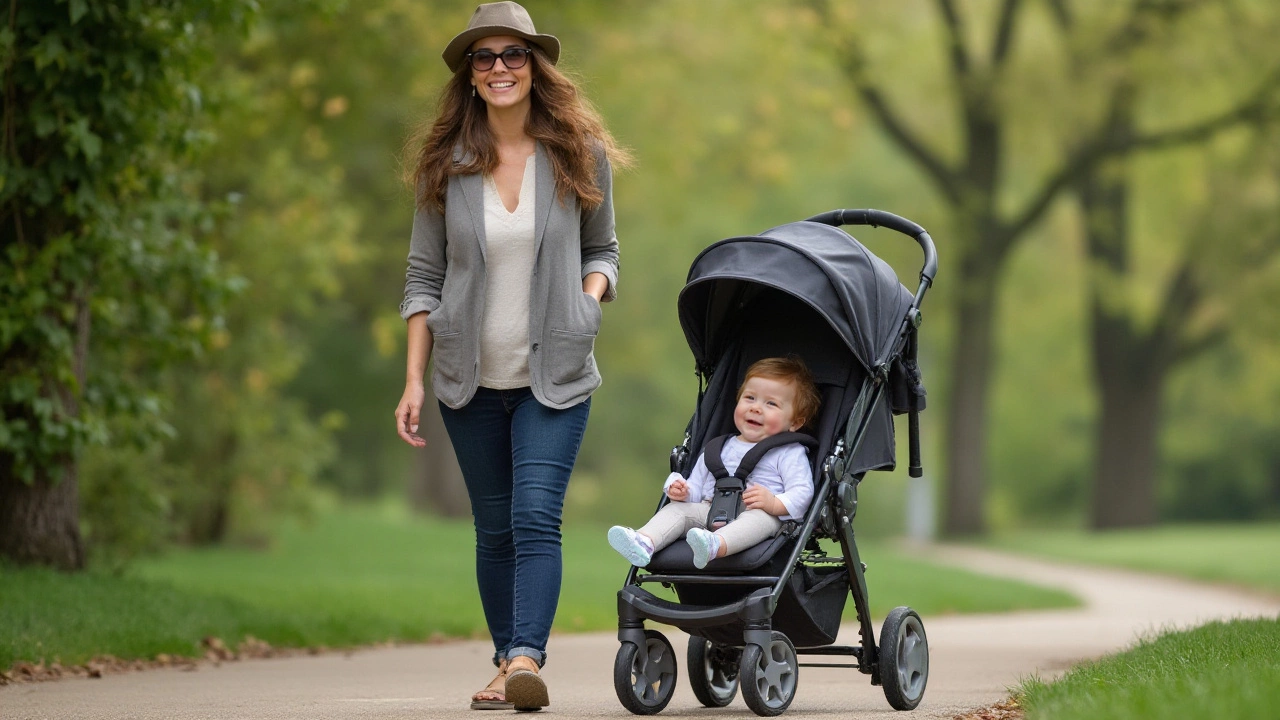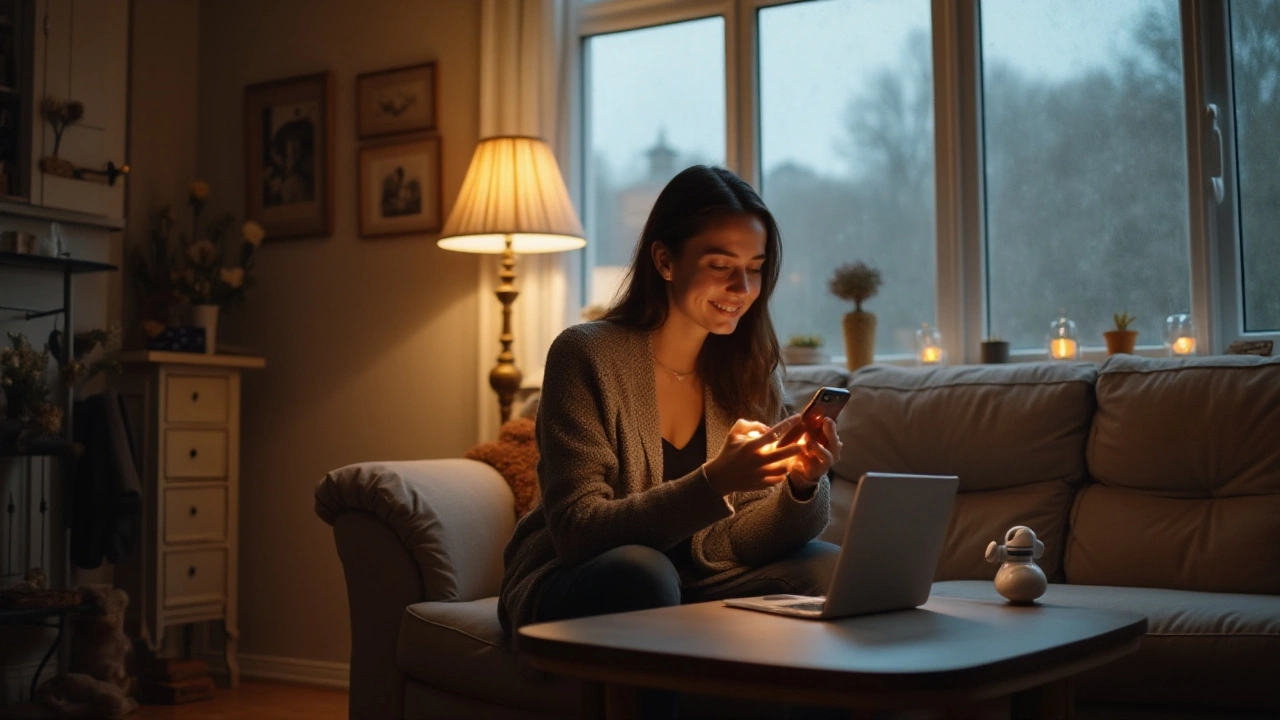Why Are Pediatricians Concerned About Owlet Baby Monitors?

Baby monitors have become a must-have for many new parents, and Owlet is one of those brands that's caught some attention. But not all attention is good. Pediatricians have raised some eyebrows over these devices. Why? Because while they promise to give peace of mind by tracking babies' vitals like heart rate and oxygen levels, there's a catch!
The main worry is about the accuracy and reliability of these readings. Misleading information from these monitors could stress parents out more rather than keeping them at ease. And here's another twist: some pediatricians argue that parents might ditch safe sleep practices because they feel over-reliant on technology. That's a no-go!
So, as you consider these trendy gadgets for your little one, it's crucial to weigh the convenience against potential drawbacks. After all, nothing beats the safety of laying your baby down in a good ol' crib that's free of unnecessary gadgets.
- Understanding Owlet Monitors
- Pediatricians' Concerns
- Potential Risks and Limitations
- Making Informed Decisions
Understanding Owlet Monitors
The Owlet baby monitor is not just any baby monitor. It's like having a mini-hospital system right beside your baby's crib. This device is marketed to keep track of your baby's vital signs, like their heart rate and oxygen levels, using a sock-like gadget that’s slipped onto your little one's foot.
The idea is straightforward: if something seems off with your baby's vitals, you get a notification. This extra layer of monitoring can be super reassuring for new parents. The device syncs with your smartphone, which means you can keep tabs on your baby’s wellbeing even if you’re just grabbing a quick shower or cooking in the kitchen. Sounds smart, right?
How It Works
Basically, there's a sensor embedded in what's called the 'smart sock'. This sensor reads the baby's vitals using similar technology to what's found in hospitals but miniaturized and tweaked for the home. Once the sensor collects its data, it sends info to a base station and, in turn, to an app on your phone.
According to the company, this type of monitoring can give parents a better night’s rest by letting them know when they absolutely need to intervene.
“Parents appreciate the extra peace of mind Owlet provides, especially during those early months when anxiety peaks,” says Dr. Emily Zhang, a pediatric specialist from Toronto.
Features to Note
- The device primarily tracks heart rate and oxygen levels—metrics that are essential for newborn wellness.
- Syncing with smartphones makes it handy, showing real-time data.
- The notification system aims to keep parents alert to potential issues.
Despite all the tech, it’s crucial to remember that Owlet is a supplement, not a replacement for tried-and-true safe sleep practices. Good sleep positioning is still key!
Pediatricians' Concerns
Pediatricians are voicing concerns over Owlet baby monitors' capability to accurately and reliably track vital signs. Why? Well, one major issue is accuracy. These gadgets claim to monitor a baby's heart rate and oxygen levels. In theory, that sounds great, right? But if the data's off even by a little, it can spell unnecessary panic for parents or, worse, provide false security.
Some doctors argue that these devices can lead to a false sense of security, making parents think their baby is safe even if they're not following the golden rules of safe sleep, like placing babies on their backs and avoiding fluffy bedding. That's a primary concern because it could potentially lead to dangerous situations.
FDA and the Medical Community
The FDA hasn't approved these devices as medical tools. This might be shocking to some since they give medical-like readings. The FDA's take points out that if a device claims to be medical but isn't approved, its reliability is questionable.
Impact on Parental Stress
Imagine being woken up by an alarm from the monitor that turns out to be a false alert. Talk about stress overload! Pediatricians see this as a concern because instead of reducing anxiety, it might just do the opposite. No parent needs that kind of drama when trying to get a little shut-eye.
Data Accuracy and Consistency
Inconsistencies in data and processing can result in parents second-guessing their instincts. Since parental instincts are crucial for baby care, this can be problematic. A study revealed that even minor data anomalies could lead parents to rely more on technology than their judgment.
In summary, while Owlet baby monitors offer promises, stepping back and evaluating these potential downsides is key. At the end of the day, parents need trusty tools—not unreliable tech—that truly supports them in those all-important early days of parenting.

Potential Risks and Limitations
When it comes to Owlet baby monitors, there are a few key concerns that have been highlighted by pediatricians. One of the biggies is the question around accuracy. These devices are not medical-grade, which means there's room for error in measuring a baby's heart rate and oxygen levels. This could potentially lead to false alarms that can unnerve parents, or worse, provide a false sense of security.
False Alarms and Parental Stress
Let's face it, nobody wants an unnecessary 3 a.m. panic attack. But with false alarms being a known issue, that's exactly what's happening in some households. These monitors might beep incessantly without any real reason, causing sleep-deprived parents to worry more than they need to.
Encouraging Risky Behavior
Another drawback mentioned by the experts is that relying too much on tech might make parents slack off on safe sleep guidelines. These include laying the child on their back and keeping the crib free of toys and loose bedding. If parents believe the technology will catch all signs of distress, they might overlook these critical safety measures.
Privacy Concerns
Yes, even baby monitors aren't free from data problems. The use of smart technology raises questions about the collection of personal data. Owlet has had to navigate this territory carefully, reassuring users about data protection, yet the concern lingers in the tech-savvy world we live in.
Potential Electrical Side Effects
You might not think about it, but some folks are worried about the long-term exposure of babies to electronic devices that emit electromagnetic fields. The science here is still unfolding, but it's an interesting conversation that comes up when discussing the use of such gadgets next to your little one.
Cost Factor
Finally, let's talk dollars and cents. Owlet monitors aren't cheap, which poses the question: is the financial investment worth it given the limitations mentioned above? Parents need to consider if the peace of mind offered is aligned with the potential financial burden.
Before jumping on the latest tech bandwagon, it's super important for parents to evaluate these risks and limitations, making informed choices that prioritize real safety over perceived convenience.
Making Informed Decisions
When it comes to choosing the right baby monitor, especially something like the Owlet baby monitor, it's all about doing your homework. Sure, tracking your baby’s heart rate and oxygen levels sounds fantastic, but here’s what to consider before going all in on these gadgets.
Research and Compare
Start by looking into different products, not just Owlet. Compare their features, reviews, and safety records. Check out what the pediatricians' concerns are and see if they apply to your situation. Having a balanced view is always a smart move!
Understand the Limitations
Remember, no device is perfect. The accuracy of these monitors can vary and manufacturers usually state they aren't a substitute for medical diagnosis. Knowing this can help manage expectations and reduce unnecessary panic.
Safety First
Stick to tried-and-true baby safety guidelines as recommended by pediatricians, like placing your baby on their back in a crib without any loose blankets or pillows. Monitors are there to assist, not replace, these vital practices.
Check for Recalls and Updates
Tech evolves fast. Keep an eye out for any updates or recalls on your chosen device to ensure you're getting the safest experience possible. It’s not just about buying – maintaining is key too.
Talk to Your Pediatrician
Your baby’s doctor can offer personalized advice that combines technology with expert medical insights. They know your baby’s health best! A quick chat could clear up concerns and provide recommendations suited just for your family.
Making informed decisions isn't just about finding what's popular. It's about understanding what suits your needs and using that information to enhance your peace of mind, not just adding stress. Whatever you decide, safety and sanity should be the ultimate priority.

